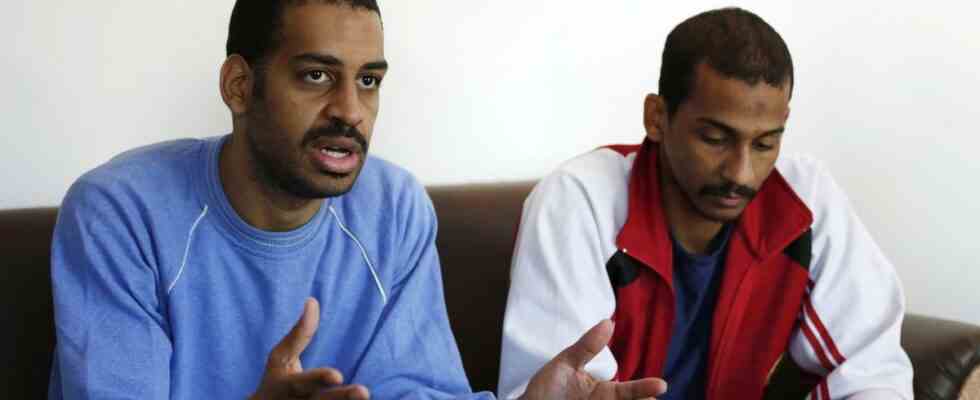Daesh’s cruel “Beatles” found it funny to sing a macabre parody of the hit Hotel California to their “terrified” hostages, Frenchman Nicolas Hénin told an American court on Wednesday. The former war reporter, turned consultant, is part of a group of 27 Western journalists and humanitarians kidnapped in Syria by Daesh between 2012 and 2015, ten of whom were executed.
He testified Wednesday at 6th day of the trial of El Shafee el-Sheikha 33-year-old man accused of being part of a group of jihadists nicknamed “the Beatles” by their hostages because of their British accent.
Kidnapped in Raqa on June 22, 2013 by other kidnappers, Nicolas Hénin first heard of them in August, when Briton David Haines and Italian Federico Motka joined him in detention after several weeks under the thumb. of these “sadistic” Britons. “When I saw them, I thought of the photos of the liberation of prisoners from Nazi camps at the end of the Second World War,” said the Frenchman, referring to the extreme thinness and fragility of the two men. These humanitarians from the NGO Acted confide that they were tortured by three men whom they nicknamed “Ringo, John and George”. They did not face the 4th of the group, “Jihadi John” killed by an American strike in 2015.
“Hotel Osama”
In September, the trio visits this small group of prisoners. “Federico and David were terrified, trembling,” recalled Nicolas Hénin. Quickly, the other hostages develop the same fear. The “Beatles”, who had become regular visitors, liked to hit, forced their prisoners to kneel before them and imposed on them “Daawa sessions”, namely an hour of theological and political rhetoric which “served above all to justify” the kidnappings .
In December, “they forced us to sing a parody of Hotel California, which became Hotel Oussama in reference to bin Laden”. “It was basically: welcome to the Hotel Osama, which you will never leave, and if you try, you will be killed in the style of Mr. Bigley”.
British engineer Ken Bigley was beheaded in Iraq in 2004 by Islamist Abu Musab Al-Zarqawi’s group, and his death was staged in a propaganda video. “It was terrifying for us, but they saw it as a joke,” said Nicolas Hénin.
4th of July Raid
In January, all the hostages are gathered in the south of Raqa, in a place which they baptize “the prison of the desert”. Nicolas Hénin recognizes the place: it is there that he was detained immediately after his capture. It was also there that he had managed to escape on the third day of his detention, through a window whose bars he had torn off. “Unfortunately”, after a night of walking, he had come across “two Daesh fighters” and had been returned to his jailers. He had then undergone a session of torture as a rule, beaten and hung in the air for hours under a scorching sun.
Despite his failure, this episode gives him a good knowledge of the place. After his release in April 2014 with three other French journalists – Didier François, Pierre Torres and Edouard Elias – he is therefore able to describe precisely this prison to the agents who question him. He speaks in particular to American soldiers who want to attempt a raid to free the American and British hostages, whose governments refuse to pay ransoms.
“Nicolas Hénin made a sketch which turned out to be particularly useful”, then told the bar an FBI agent, Robert Daniel Story, involved in this delicate operation. On July 4, American National Day, soldiers landed in helicopters at “the desert prison”. After exchanges of fire, they enter the building. “But the hostages were no longer there, they had been moved,” recalled Daniel Story. “It was a huge disappointment.”
In the following months, several of them, including the three Americans James Foley, Peter Kassig and Steven Sotloff, suffered the same fate as Ken Bigley. Their death is worth to El Shafee el-Sheikh, arrested in 2018 by the Syrian Kurdish forces, to be judged in the United States. His trial is expected to last two more weeks.

